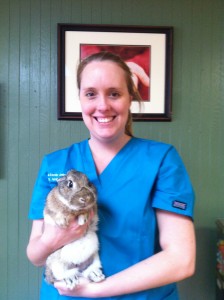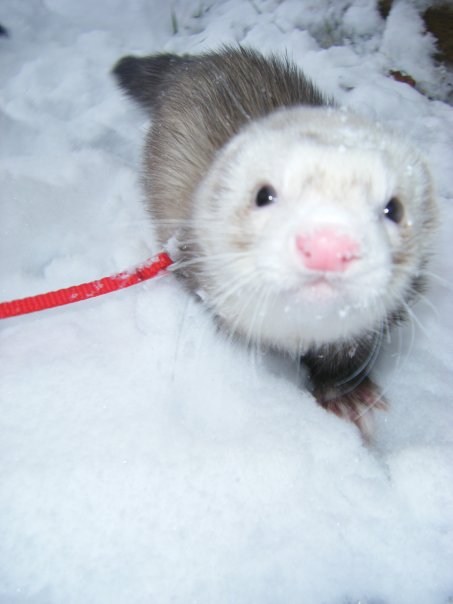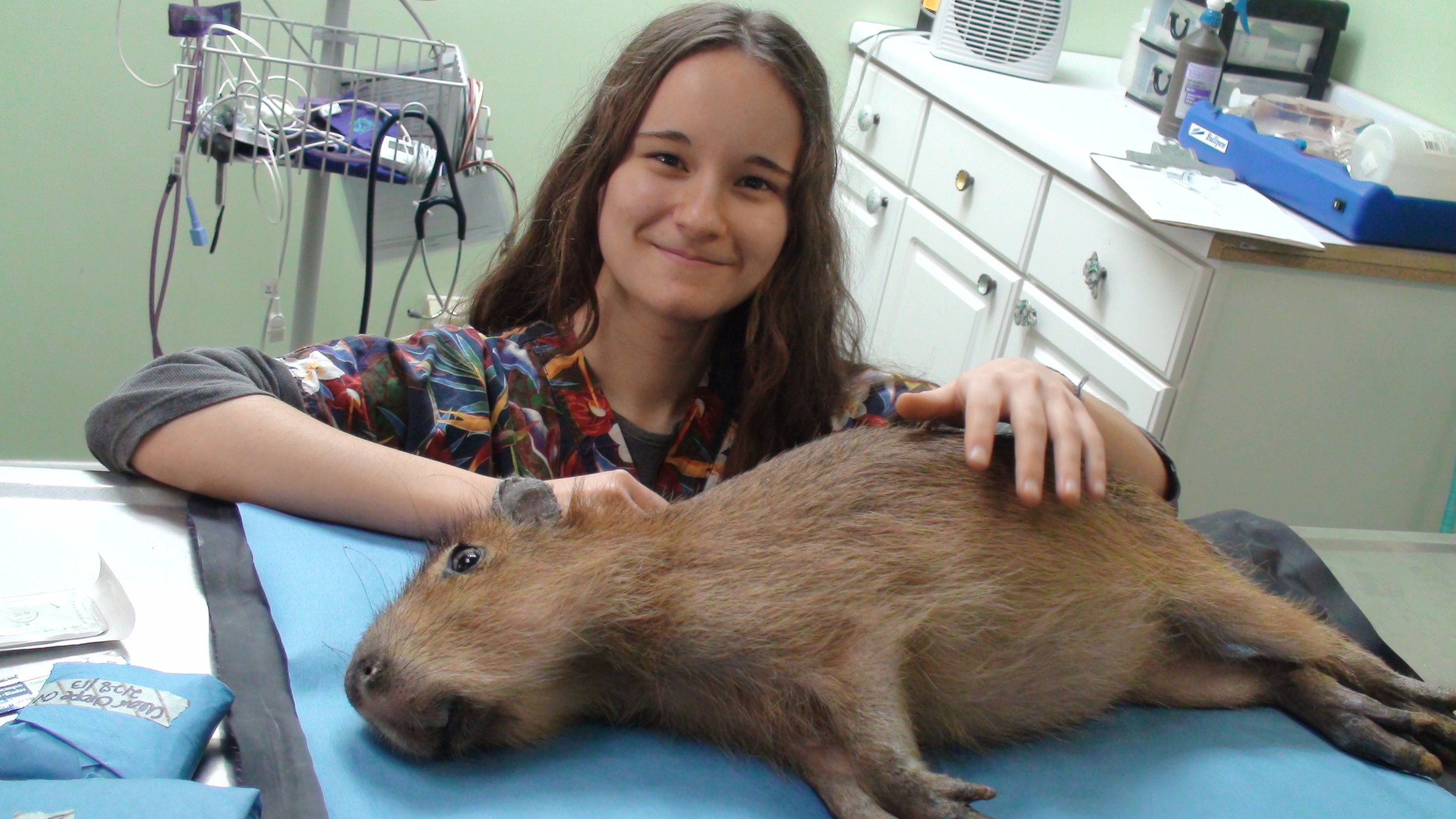The following story was written by Hannah, an American currently living in Edinburgh, Scotland. Hannah’s family hosted the Lennox family during their stay in the UK while Dr. Lennox was teaching. Hannah wants to be a veterinarian:
 From as far back as I can remember, I have always wanted to be a veterinarian. Dr. Lennox gave me my first glimpse into a working clinic when I was11 (I absolutely loved it), and now at 16 she allowed me to accompany her to the BSAVA conference in Birmingham. I truly did not know what to expect. The congregation of thousands of vets and nurses from around the world came as a huge surprise. I had always just assumed that once you were out of college, that was it. Done. No more learning. Well, I was wrong. Everyone is eager to listen to the experts, take advice, try out new methods of treatment, and grab any new piece of data available. Even I was able to take away some useful advice despite my appalling lack of technical vocabulary.
From as far back as I can remember, I have always wanted to be a veterinarian. Dr. Lennox gave me my first glimpse into a working clinic when I was11 (I absolutely loved it), and now at 16 she allowed me to accompany her to the BSAVA conference in Birmingham. I truly did not know what to expect. The congregation of thousands of vets and nurses from around the world came as a huge surprise. I had always just assumed that once you were out of college, that was it. Done. No more learning. Well, I was wrong. Everyone is eager to listen to the experts, take advice, try out new methods of treatment, and grab any new piece of data available. Even I was able to take away some useful advice despite my appalling lack of technical vocabulary.
The exhibition hall was something else. Just imagine a kids carnival, but filled with veterinary products instead of candy stalls and rides. Oh, and adults instead of children. Marketers had gone all out. There were colorful banners and posters to advertise their top quality products, attracting the vets with the help of candy bribes and toys (our favorite was the chameleon stress ball). And games! Who knew that adults would run around an exhibition trying to get as many stamps on their cards as possible in order to win an iPad? So kids, don’t think that adulthood is all work, they have their fun too.
The difference between us kids and those in a profession is that the adults seem to have a better balance between work and play. The exhibition hall was full of fun stuff, yes. However, I found that people actually managed to make business exchanges, whether it was informing people about the benefits of using a bunny t-shirt to prevent chewing stitches or learning about a new way to apply a drug.
I must admit that I was initially a little overwhelmed by the sheer volume of people taking part in the conference, but once I had gone to Dr. Lennox’s lectures and had a look around the exhibition hall myself, I was much more at ease. This experience has helped me to see yet another side of what it means to be a veterinarian, showing me that the veterinary community is something that I definitely want to be a part of. I have so much to thank Dr. Lennox for. She has helped me see that this is what I want to be, but now only I can carry myself over the final mile to make this dream a reality.
- Hannah
 We recommend our owners have at least the following: a back up source of warmth should the power go out in cold weather, a source of bottled water, an emergency baby sitting site, and enough easily accessible carriers for each and every pet should you have to leave the premises immediately.
We recommend our owners have at least the following: a back up source of warmth should the power go out in cold weather, a source of bottled water, an emergency baby sitting site, and enough easily accessible carriers for each and every pet should you have to leave the premises immediately. We recommend our owners have at least the following: a back up source of warmth should the power go out in cold weather, a source of bottled water, an emergency baby sitting site, and enough easily accessible carriers for each and every pet should you have to leave the premises immediately.
We recommend our owners have at least the following: a back up source of warmth should the power go out in cold weather, a source of bottled water, an emergency baby sitting site, and enough easily accessible carriers for each and every pet should you have to leave the premises immediately.








































